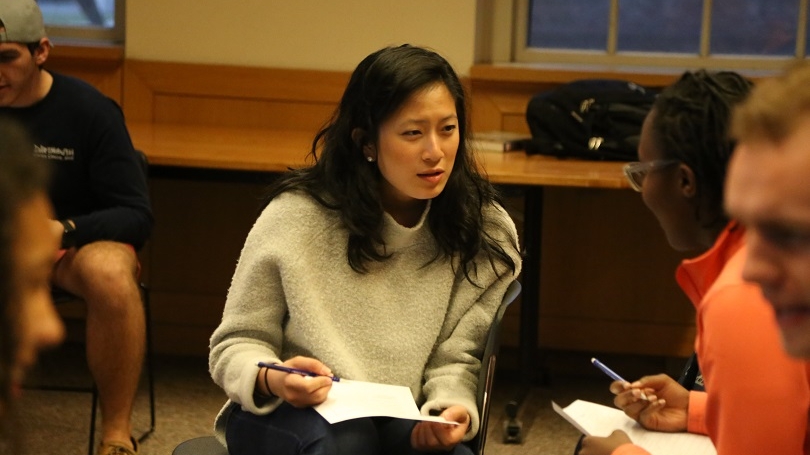
- Public Policy
- Leadership
- Funding
- News & Events
- About the Center
Back to Top Nav
Back to Top Nav
Back to Top Nav
Back to Top Nav
This week’s RGLP session proved a fitting follow-up to the individualized IDI feedback sessions of the prior week. Our facilitator, Gama Perucci, taught us about the three distinct phases of globalization that have spanned the past few centuries – one phase dominated by the nation-state, one by the multinational corporation, and the modern phase by the individual. This chronological framework neatly illustrates the evolution of global citizenship across time and where geographical boundaries have failed to define cultures and peoples. I especially appreciated the introduction of variables like religious agendas and capitalist endeavors into the exercise, which lent a uniquely human element to the fictional kingdoms and corporations that Perucci had us develop.
The culminating activity, during which we observed a simulated cultural practice of the fictional Albatros Island people, challenged us to consider the ways in which our own experiences and biases color our interpretation of other cultural behaviors. In analyzing what we had seen in the simulation, several students discussed the ostensibly backward gender dynamics of the fictional ritual – from the binarized male-female roles that seemed to preclude a gender spectrum to the perceived submissiveness of the females in the scenario. The morality of the scenario was hotly questioned: if the women in a given situation feel empowered, is it our place to say that they are not according to the beliefs we project onto others? Questions like these forced us to confront where we might have been denying, polarizing, minimizing, accepting, or adapting the differences between the Albatros Islanders and ourselves.
This session and the Albatros Island exercise in particular put into sharp focus the history that preceded today’s “flat” world and how we can use the IDI framework to process and analyze our kneejerk reactions to other cultural behaviors in an increasingly globalized society.
-Submitted by Allison Chou '17, RGLP participant